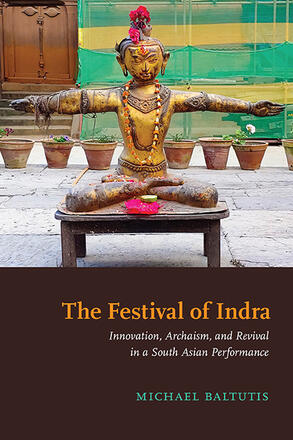
The Festival of Indra
Innovation, Archaism, and Revival in a South Asian Performance
Alternative formats available from:
Details the textual and performative history of the South Asian festival of Indra and its role in the development of classical Hinduism.
Description
The Festival of Indra details the textual and performative history of an important South Asian festival and its role in the development of classical Hinduism. Drawing on various genres of Sanskrit textual sources—especially the epic Mahābhārata—the book highlights the innovative ways that this annual public festival has supported the stable royal power responsible for the sponsorship of these texts. More than just a textual project, however, the book devotes significant ethnographic attention to the only contemporary performance of this festival that adheres to the classical Sanskrit record: the Indrajatra of Kathmandu, Nepal. Here, Indra's tall pole remains the festival's focal point, though its addition of the royal blessing by Kumari, the "living goddess" of Nepal, and the regular presence of the fierce god Bhairav show several significant ways that ritual agents have re-constructed this festival over the past two thousand years.
Michael Baltutis is Professor of Religious Studies at the University of Wisconsin Oshkosh.
Reviews
"This valuable and ambitious work covers an important and understudied ritual form that has a long South Asian history, the Indra Festival. This festival is particularly interesting historically, since it falls between the Vedic sacrificial models of ritual in the earliest period and the image‐puja models of later temple Hinduism. Baltutis approaches the topic as an Indologist, historian, and ethnographer, and the resulting book represents a significant contribution to South Asian religious studies." — Richard H. Davis, author of The Bhagavad Gita: A Biography